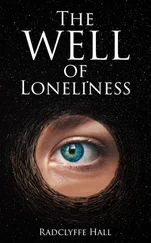“Densdeth!” cried I. “Who and what is Densdeth? Does he hold every man’s leading-strings to the Devil?”
“What is Densdeth? My story will give you a fact or two in answer to the question. I go on with it rapidly.
“Emma Page married Denman.
“She tried splendor for a year. She was the beautiful wife of the richest young man in town.
“At the year’s end, her daughter Emma was born.
“A child is a terrible vengeance to a mother who has ever lowered her womanhood, by thought or act. What tortures she would have endured, — so she now too late thinks, — if she could lave purged and made anew the nature she has transmitted to an innocent being! But there it lies before her in the cradle, the embodiment of her inmost thought. There lies the heir, and the waste of his heritage is irreclaimable.”
“Don’t be so cruelly stern,” said I. “You out-Herod Herod, in the converse. You massacre the Innocents because they are guilty. This is the old dead dogma of original sin, redivivus and rampant.”
“No; the dogma is dead, and science handles the facts without the trammels of an impious theory. Life cures, and Death renews. But Life should be a feast, not a medicine.
“Emma’s birth,” he continued, “transformed Mrs. Denman. For a year she was a faithful mother.
“Denman did not like his wife so well in this capacity. They diverged widely. To be handsome for him and showy for the public was his notion of Mrs. Denman’s office. The second year flowed rough.
“At the end of it, Clara was born, the child of a woman chastened and purified.
“A fortnight after her birth, Denman came to me.
“‘My wife is desperately ill,’ said he. ‘She wishes to see you.’
“I went calmly to this farewell interview with my old love. The husband seemed to abdicate in my behalf.
“‘I am to die,’ she said, almost gayly. ‘I have sent for you, because I trust you wholly. Dear friend, here are my daughters! Befriend them for my sake! I feel that you will understand the yearnings of young souls. Make them what you once hoped of me! Will you not be the father of their spiritual life? Forgive me, dear friend, for the old wrong, for the old wrongs! Prove that you have pardoned me by loving mine. Good-bye.’”
Churm was silent awhile.
He lighted a fresh cigar and smoked steadily. The smoke lifted slowly in the still room, and hung in wreaths overhead. He sat looking vaguely into the shifting cloud.
Table of Contents
I watched Churm, as he smoked.
Love, disloyalty, penitence, death, — were these all unrealities, that he could speak of them in his own history so calmly? Could a man be hurt as he had been, and overlive unscarred? I had heard cool men say, that “the tragedies of this life become the comedies of another, and that we should some time smile to recall our cruellest battles here, as now we smile to watch the jousts of flies in a sunbeam.” Churm’s tragedy was still tragedy to him. He had begun to recite it with evident pain. But the pain of his tone became indifference before he closed; and now he sat there smoking, as if he had related gravely, but without emotion, the mishaps of some stranger.
I wondered.
He looked through the smoke, caught my wondering eye, smiled soberly, and said: “Such an experience as I have described is like a shirt of Nessus, which one wears until the prickles of its poisoned serge have thoroughly toughened his skin. When it ceases to gall, he strips it off and hangs it by the highway for whoever runs to take; or if he finds some sensitive friend, like you, Robert, he lays it upon his shoulders, and says, ‘Wear this! The edge of its torture is gone. It will harden you for the garment the Fates are weaving for you.’”
“Dear me!” said I, shrugging my shoulders. “Have I got to stand haircloth and venom? Well, if that is the common lot, and I cannot escape, I am much obliged to you for trying to make me pachydermatous. But you have not succeeded very well. The story of another’s pain makes my heart softer.”
“Sympathy for others is stout armor for one’s self. But, Byng, you have heard the first tragedy of the series; listen to the second!”
“The second! Is there a third? Is the series a trilogy?”
“The third is unwritten. The march of events has paused while Densdeth was off. And to-day he steps from behind the curtain with you, a new character, half inclined to be his satellite. Perhaps you have a part to play.”
There was a vein of seriousness in this seeming banter.
“Perhaps!” said I, puffing a ring of smoke away. “But pray go on. I am eager to hear the whole.”
“After his wife’s death, Denman said to me, ‘Mr. Churm, Emma told me that you were willing, for old friendship’s sake, to give an eye to my two poor girls’ education. Suppose you take the whole responsibility off my hands. I will make their million apiece for them. You shall teach them how to spend it.’ I gladly accepted this godfatherly post. The girls became to me as my own children.
“I shall say nothing to you,” Churm here interjected, “of Emma.”
“Why not?” I asked.
“You will see her. Judge for yourself! Clara you will never see. Of her I will speak. But first what do you remember of the sisters?”
“They were my pets when I was a school-boy. Emma I recollect as a lovely, fascinating, caressing little thing. Clara was shy and jealous, full of panics that people disliked her for her ugliness. I might have almost forgotten them, except for a sweet, simple, girlish letter they jointly wrote me upon my father’s death. It touched me greatly.”
“I remember,” said Churm. “Clara consulted me as to its propriety. Dear child! sympathy always swept away her reserve. But you speak of her ugliness, Robert?”
“She was original, unexpected; but certainly without beauty. In fact, ugly and awkward, beside Emma.”
“She became beautiful to me by the light that was in her. I could not criticise the medium through which shone so fair a soul. She educated me; not I her. She illuminated for me the new truths, she interpreted the new oracles; and so I have not fallen old and staid among my rudiments, as childless men, with the best intentions, may.”
“You give me,” said I, “a feeling of personal want and personal robbery by her death.”
“Fresh, earnest, unflinching soul!” Churm sadly continued. “How she flashed out of being all the false laws that check the mind’s divine liberty! Not the laws of refinement and high-breeding; they, the elastic by-laws of the fundamental law of love, are easy harness to the freest soul. In another house than Denman’s, among allies, not foes, what a noble poem her life would have been!”
“Foes!” said I. “Was there no love for her at home?”
“Denman admired his daughters. Love remains latent in him. He has not outgrown his passion for the grosser fictions, wealth, power, show.”
“But Emma! The two sisters did not love one another? If not, where was the fault?”
“Nature made them dissonant.”
“Their foster-father could not harmonize them?”
“I did my best, Byng. But young women need a mother. I suppose the mothers in society shrug up their shoulders, when they talk of Clara’s disappearance and death, and say, ‘What could you expect of a young person, whose nurse, governess, and chaperon was that odd Mr. Churm?’”
“You were absent when she disappeared?”
“Away from my post. In England. On some patent business.”
“Pity!”
“I curse myself when I think of it. About this misery, Robert, I have not learned to be calm.”
“You did not approve her proposed marriage with Densdeth, — that I am sure.”
Читать дальше












